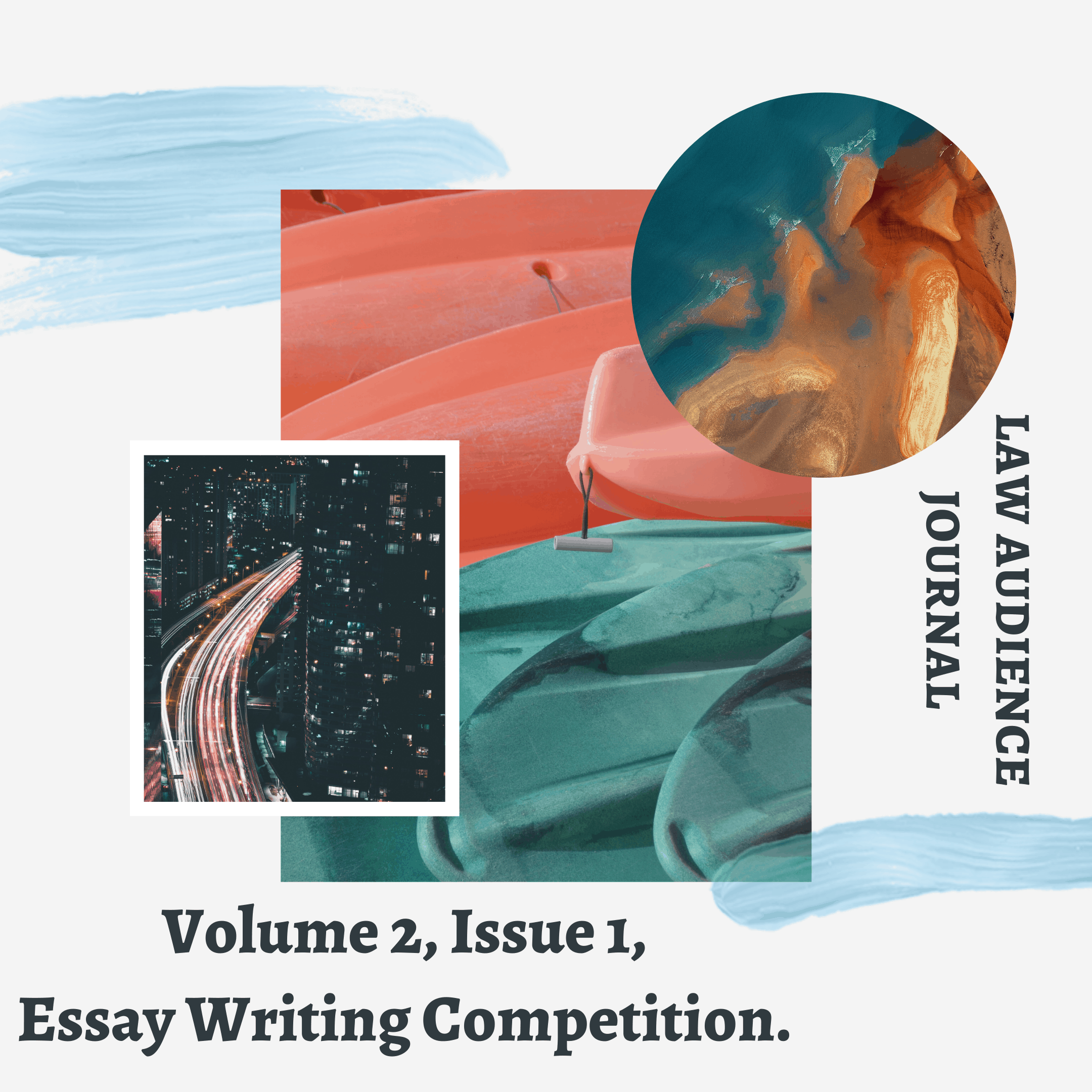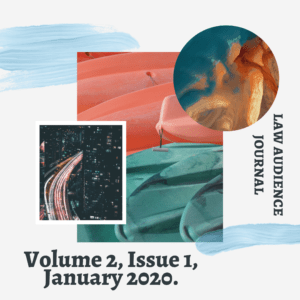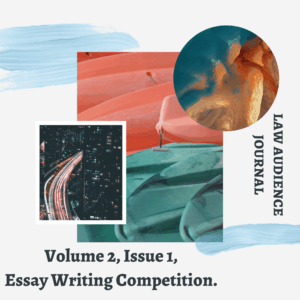AUTHORED BY: MS. MANASVI VERMA (B.A.LL.B (Hons)), Prestige Institute, Department of Law.
I. INTRODUCTION:
An advisory was issued to social media groups from Cyber Crime Portal under the Ministry of Home Affairs (MHA), issuing directions on how these social networking sites and its members were to function during Covid-19 pandemic. It lists legal provisions under which action can be taken against five unverified messages related to pandemic. This ‘advisory’ was not issued by MHA and is one of much fake news circulating on the social media platform. Ever since the coronavirus outbreak in India, social media have faced an avalanche of false news about the virus, its origin, spread and what not. Many of such misleading post on WhatsApp, Facebook, and Twitter have amplified the menace of fake news, which has served in creating panic and communal tensions.
This article questions the fact that pandemic has taught us the importance of personal hygiene, but what about ‘information hygiene’?
In India, people read the news on social media rather than newspapers. It has revolutionized the way people view and share the news. This platform enables the distribution of large volumes of disinformation on WhatsApp groups, which have now become a popular medium for people to consume news content that lacks any authentication mechanisms. Society is battling a deluge of misinformation and information disorder. Free publication or broadcast of news in India flows from Fundamental Rights enshrined under Art 19, which advocates Freedom of speech and expression. But it has resulted in privacy violation, as a medical record of tested individuals was being willfully circulated online. Many false medical reports of people have been circulated which whereby resulted in their social boycott.
Dr. Tedros Adhanom Ghebreyesus, Director-General of World Health Organization (WHO) said on the menace of fake news:[1]
“We are not just fighting an epidemic; we are fighting an infodemic. Fake news spreads faster and more easily than this virus, and is just as dangerous.”
II. SOME VIRAL INFORMATION/MESSAGES/VIDEOS DURING COVID-19 PANDEMIC:
Infodemic is the excessiveness of information that makes it difficult for people to identify truthful and trustworthy sources from false or misleading ones. Amid Covid-19 pandemic some of the videos and messages including unverified information targeting certain ‘communities’ for the spread of the virus floated on social media groups, this further instigated communal tensions.
Some of them were:
- A recent video of Muslim community went viral wherein; some people were seen licking the plates. The video invited much outrage because of coronavirus spread. Thus Newslaundry did a fact check and found the video, is from 2018. It was a mosque of Dawood Bohra community in, Mumbai and this act was part of an awareness campaign about food wastage.
- Other false claims include Muslim man, spitting on fruits to spread Corona. Muslim sneezing in unison to spread corona.
- Indian news agency ANI runs a baseless story claiming Hindus denied rations in Karachi. Muslim Foreign National tested positive for coronavirus hiding in Patna Mosque to avoid testing.
- Palghar incident was given a communal angle, wherein it was falsely claimed that the Muslim community beating the Hindu priest.
- A message attributed to WHO has been shared to claim that the UN body has released an official protocol and procedure of lockdown periods to fight COVID-19. WHO has clarified that the message has been falsely attributed to them. Secondly, the viral message is based on a research paper which proposes lockdown with periods of relaxation in between to contain COVID-19.
- A message on social media requests WhatsApp group admins to close their groups for 2 days to avoid police action against them and group members ‘vide section 68,140 and 188 if someone posts a joke about coronavirus.’ The second part of the message talks about the implementation of the Disaster Management Act across India and that no citizen is allowed to post any forward related to coronavirus. The fact states that Sec 68 of the Disaster Management Act talks about the authentication of orders. There are no sections 140 and 188 in DMA.
- A media channel falsely claimed that Tablighi Jamaat members demanded Biryani and denied eating food in quarantine hospitals. This was later declared a false claim by police.
- A rumour of a lockdown of essential commodities resulted in people hoarding the essential supplies, thereby creating a situation of panic.
III. LEGAL PROVISIONS TO DEAL WITH FAKE NEWS:
The Supreme Court has also recognized the problem of fake news being circulated in large chunks. Even though at present India does not have a specific law to deal with the menace of false news, Indian States have adopted colonial-era law amid Covid-19 pandemic. Legal provisions, which can be invoked in the current scenario, are Information Technology Act, Indian Penal Code, Disaster Management Act, and Epidemic Disease Act to tackle misinformation and initiate intense awareness on fake news.
Section 505(1) of Indian Penal Code, 1860[2]:
Whoever by making, publishing or circulating any statement, rumour or report which may cause fear or alarm to the public, or to any section of the public shall be punished with imprisonment which may extend to three years, or with fine, or with both.
Section 66D of the Information Technology Act:
Whoever, by means for any communication device or computer resource cheats by personating, shall be punished with the imprisonment of either description for a term which may extend to three years and shall also be liable to fine which may extend to one lakh rupees.
Section 54 of the Disaster Management Act, 2005:
Whoever makes or circulates a false alarm or warning as to disaster or its severity or magnitude, leading to panic shall be punished with the Imprisonment which may extend to one year or with fine.
Section 188 of the Indian Penal Code, 1860:
Disobedience to order duly promulgated by public servant to take care of medical emergency cases reported. One can be punished only if one disobeys the rules of a public servant.
IV. LATEST CASES:
Pankaj Rajmachikar v. State of Maharashtra[3], [PIL (Lodging) No. 24 of 2020, decided on 15-04-2020]:
- R.K. Deshpande, addressed a Public Interest Litigation challenging the order passed by Deputy Commissioner of Police under Section 144 of Code of Criminal Procedure, 1973 with regard to the prohibition of dissemination of information through social media platforms like WhatsApp, Twitter, Facebook, Tik Tok, Instagram, etc to protect people from false and incorrect information being provided in respect of COVID 19 disease, which is spread all over.
Alakh Alok Srivastava v. Union of India[4], order dated 31.03.2020:
Supreme Court took note of fake news that provoked mass movement of migrant labour during the national lockdown. In this regard, the court noted that a “daily bulletin by the Government of India through all media avenues including social media and forums to clear the doubts of people would be made active within a period of 24 hours[5].” Court added that it did not intend to interfere with a free discussion about the pandemic, but direct media to publish official version about the news. Division Bench comprising of CJI Bobde and Justice L. Nageshwar Rao, made a note to record: “No web portal or social media shall print or publish or telecast anything without first ascertaining true factual position provided by the Central govt”.
In this regard, the Court noted that a “daily bulletin by the Government of India through all media avenues including social media and forums to clear the doubts of people would be made active within a period of 24 hours as submitted by the Solicitor General of India.”
V. VARIOUS LEGAL ACTIONS THAT HAS BEEN TAKEN SO FAR AGAINST PERSON INVOLVED IN SPREADING FAKE NEWS:
- A youth hailing from Uttarakhand was arrested for spreading rumours and making objectionable comments related to Tablighi Jamaat on social media. The person was arrested and booked under IPC Section 153 A and 293 A, for disrupting communal harmony in the district.
- The Government has asked Facebook and Tik Tok to remove users spreading misinformation about the COVID-19 pandemic in India. The move came after Delhi based digital analytics firm Voyager Infosec found that a lot of misinformation was being spread on these platforms, like using religious beliefs to justify defiance of health advisories over coronavirus.
VI. ACTIONS ARE TAKEN BY VARIOUS STATE GOVERNMENTS REGARDING FAKE NEWS SPREAD:
Maharashtra:
Maharashtra police has registered as many as 51 cases across the state against various individuals spreading fake news, rumours and false or fraudulent claims concerning the pandemic. In one specific case a newspaper advertisement dated March 13, claiming that the mattresses could cure Covid-19 resulted in an FIR being registered against the owner of mattress company.
Maharashtra CM Uddhav Thackeray addressed the fake news and communal hatred and warned of the government’s strict action against people found guilty of indulging in the spread of fake videos that threaten the state’s peace.
Uttar Pradesh, Lucknow:
A fake Godman Ahmad Siddiqui calling himself as “Corona Wale Baba” claimed that those who could not wear a mask could use the talisman to keep corona away. He has been arrested for fraud and forgery.
Odisha:
A man has been arrested for posting false information on Facebook regarding a Kerala-returned person who had tested positive for coronavirus and was under treatment in Rayagada. Kerala CM Pinarayi Vijayan, also lashed out at the seemingly targeted moves to isolate and attack a particular community citing the Tablighi Jamaat congregation at Nizamuddin in Delhi. The CM said strict action will be taken against such people. Amidst the ongoing coronavirus pandemic panic, Twitter has been ablaze with underhanded attempts at communalizing. Many Twitter users responded to the communal hashtags as a misguided attempt to target Muslims.
VII. SUGGESTIONS TO DEAL WITH SITUATION OF INFODEMIC:
Under IT Act, rules must be framed and action must be taken against the person responsible for inception, transmission and reception of fake content. Stringent laws should govern the generator and transmitter of news. Also, the person circulating it must be booked under such rules. Law must be enforced to remove fake contents or block the senders. There has to be an auto-generated mechanism which must curb further spread of disinformation. National Disaster Management Guidelines, 2008 (NDMG) should be invoked in the current situation.
Privacy is of paramount importance so Ministry of Health and Family Welfare (MoHFW)[6] had released a draft ‘charter of patient rights’ which had factored in the privacy of medical records of patients. This was just after MoHFW had drafted the ‘Digital Information Security in Healthcare Act’ (DISHA) and offered it for public comments in March 2018.
DISHA was intended to specifically look at the data privacy and confidentiality of digital health data. Medical records would be a ‘sensitive personal data’ under PDPB as it is today as defined under the Rules notified under the IT Act in April 2011, and such data cannot be circulated without the explicit permission of the provider.
Lastly, a larger educated section of society and media should take cognizance of sharing authentic news and abide by regulations during the times of pandemic.
[1] Pulkit Atal, The menace of Fake News & propaganda and the fight against them, INDIAN LEGAL (April 5, 2020, 9:33PM),https://www.indialegallive.com/top-news-of-the-day/news/menace-fake-news-propaganda-fight-94880.
[2] Pulkit Atal, The menace of Fake News & propaganda and the fight against them, INDIAN LEGAL (April 5, 2020, 9:33PM),https://www.indialegallive.com/top-news-of-the-day/news/menace-fake-news-propaganda-fight-94880.
[3] Devika, Fake News, SCC ONLINE,(April 16, 2020), https://www.scconline.com/blog/post/tag/fake-news/.
[5] Meera Emmanuel, Fake news and panic driven migration caused untold misery to migrant labourers, Supreme Court, BAR AND BENCH, (March 31, 2020,10:58 PM), https://www.barandbench.com/news/litigation/coronavirus-lockdown-fake-news-and-panic-driven-migration-caused-untold-misery-to-migrant-labourers-supreme-court-read-order.
[6] Subimal Bhattacharjee, Fighting fake news amidst Covid-19, BUSINESS LINE,(April 02, 2020), https://www.thehindubusinessline.com/opinion/fighting-fake-news-during-covid-19/article31233348.ece#.


